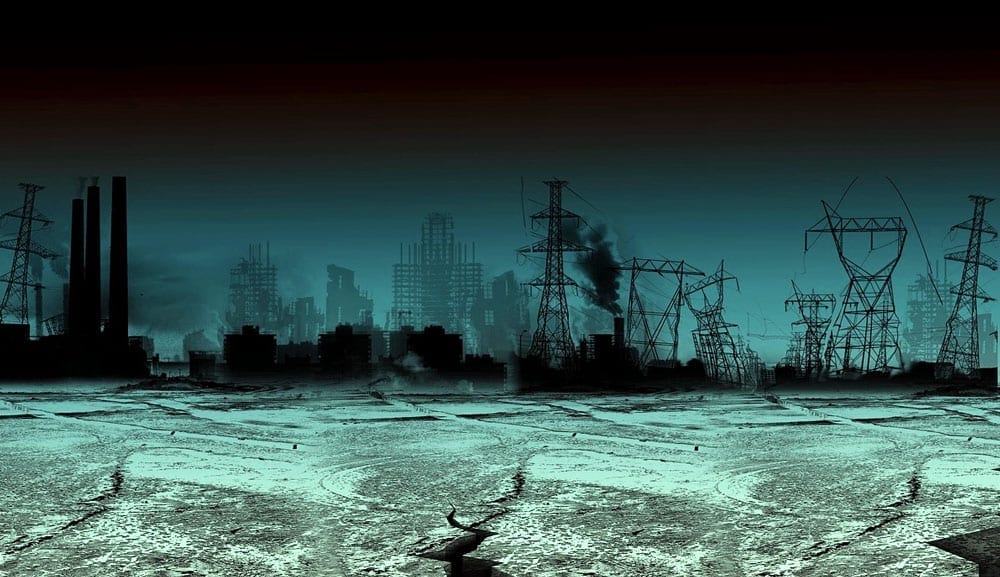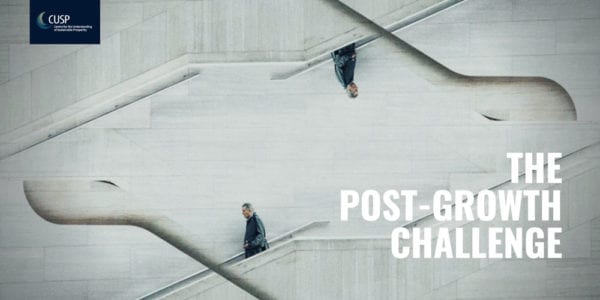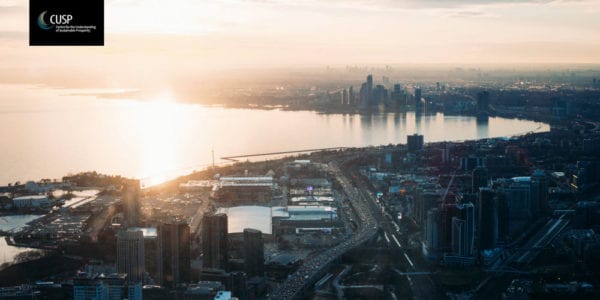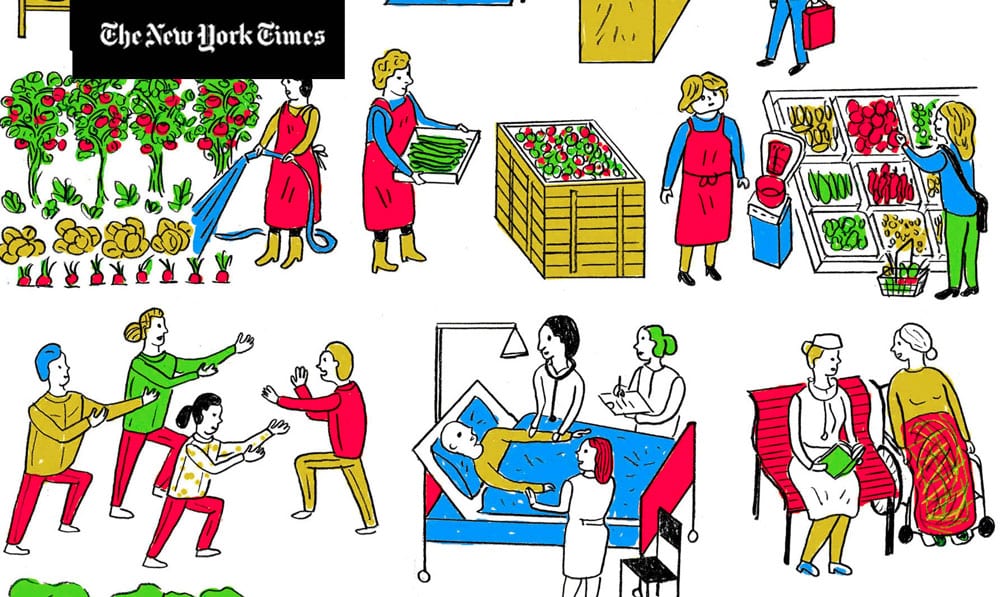Embracing the Unthinkable
The UK is becoming an angry, divided and insecure country, Alan Simpson writes. Right now, it doesn’t have to be that bad. Another world is still (just) possible, but we need the courage to build it, now.

It wasn’t the 130 forest fires raging across the USA that got to me, nor the UK’s moorland fires, the torrential storms hitting Belfast with 2 months rain in 2 hours, the lightning strikes that took out train signalling systems across the North of England, or the gales causing widespread travel disruptions. What stopped me in my tracks was something far more subtle.
I’ve come to accept that politics will struggle to address ‘climate’ until the public translates it into ‘weather’. By then it may be too late. But a short pamphlet Understanding the ‘New Normal might just take this into a completely different space.
In just 6 pages Tim Jackson’s small, but perfectly informed pamphlet sets out how economics ‘as we know it’ is heading off a cliff… possibly even before climate does.
His argument is that industrial economies are about to enter an era of ‘secular stagnation’. Britain’s economic growth could all but disappear within a decade.
New technologies will bring change, but not the unparalleled growth many politicians have been pinning their hopes on. It could herald the opposite – zero growth, spiralling inequalities and the “immiseration of labour”.
Just so we’re clear, Jackson is no ‘off piste’ eccentric, inhaling the wrong stuff. For seven years he was Economics Commissioner to the UK Sustainable Development Commission. Now, as Professor of Sustainable Development at the University of Surrey, he and other colleagues provide the Secretariat to parliament’s Limits to Growth Group. So much for their ‘war medals’. What set my antennae jiggling was something quite different.
Jackson’s latest research was commissioned by the Ministry of Defence. It forms part of the MoD’s 2018 Strategic Trends Review.
When the MoD trumps mainstream politics
In parliament, political leaders squabble over Brexit (utopia or Armageddon?). They obsess over who is falling out with whom. And they can’t agree on whether it is all down to their detractor’s sex, faith or political inclination. Meanwhile Britain’s defence and security services have cut to the real chase: what are the forces that most threaten to tear society apart? Social polarisation and climate change is the answer.
When those responsible for national (and international) security look across the political landscape they see a politics that is dangerously detached from these two colossal threats to future security.
An international landscape that fails to address extremes of poverty and wealth, as consistently as it fails to address extreme weather events, drifts inexorably towards breakdown. Right-wing, populist movements spring up offering only siege mentality solutions – pull up the drawbridge, sod the outsiders, get rid of foreigners and infidels. Europe is littered with examples of such political fragmentation; a fragmentation that has only ever dragged nations into war.
Skim through the news the UK is becoming accustomed to and it’s hard to escape the conclusion that Britain is caught up in the same process. We are becoming an angry, divided and insecure country. This is where current British politics and economics has taken us.
Income inequality in the UK is higher than in most EU countries. Wealth inequality is wider still. Over 45% of UK wealth is now owned by the top 10% of the population. The poorest 50% own just 9%…and their slice is shrinking.
In Brexit-voting Labour heartlands, the core of public hostility is not rooted in racism, nor in Brussels bureaucracy, but in the hopelessness of the life that stares people in the face. What prosperity? What secure employment? What prospect of decent housing, schools, skills? This is where neoliberal economics ends up…and it’s going to get worse.
Secular stagnation – the new ‘normal’
The first notable warning about ‘an end to growth’ probably came from ex-US Treasury Secretary, Larry Summers in his 2013 speech to the IMF. Credit Suisse came next and a flotilla of economists followed suit. All point out that, over the last 50 years, GDP growth rates in industrial nations have fallen from over 4%p.a. to 1%. Productivity rates have followed the same trend. As Jackson then observes –
“…labour productivity growth would reach zero across the OECD by around 2028.”
Current policies make this more likely rather than less. The West’s response to 2008’s collapse of casino economics wasn’t much more than throwing cheap money into the casino. As many argued, it would have been better to have thrown the money into infrastructure investments, delivering a Green New Deal. But we didn’t.
Instead, cheap money led to financial speculation, asset price inflation, widening inequality and a squeezing out of meaningful investment in the real economy. Worse still, it heralded an austerity that demanded the poor pay the price for a crisis they never created.
Today’s ‘bubble’ will also burst. It will do so just as the earth gets rocked as the heavens open, forests burn, crops fail and dams dry up. For those who would look, Leonard Cohen’s warnings hang ominously in the air –
“Things are going to slide, slide in all directions,
Won’t be nothing, nothing you can measure any more.
The blizzard, the blizzard of the world, has crossed the threshold
And it has overturned the order of the soul.”
Right now, it doesn’t have to be that bad. But we don’t have that much time to play with. The key lies in ‘the order of the soul’.
The politics of inclusion
Jackson’s suggestion is that we drop the pursuit of illusory ‘productivity growth’ in favour of an economics of inclusion.
“This may mean accepting, perhaps even encouraging, lower labour productivity growth in some key sectors.”
Extreme weather events offer a good example of what this might mean. In a crisis, no one asks about the productivity of the emergency services. We just want to know where they are. The same thinking has to apply to the other cornerstones in tomorrow’s ‘sustainable’ economics.
Food security, water security, clean energy and clean air can reconnect us to living within planetary boundaries. The solutions will all turn out to be much smarter, local and accountable than anything on offer now. They will also be where tomorrow’s jobs, skills and social inclusion are found. The challenge is to get politicians to venture into spaces that, so far, only the defence and security services seem happy to paddle in.
Tomorrow’s ‘secure space’ has to begin from a Britain that cuts its current carbon emissions in half within the coming decade. This doesn’t end the problem. But without it all bets are off.
The real politics of future security will be determined by what is delivered in the next parliament (and the one after). Politicians who would still ‘kick the can down the road’ – clinging to post-dated policies, pipe dream technologies and indeterminate budgets – will not halt the blizzard.
Another world is still (just) possible. But we need the courage to build it, now.






